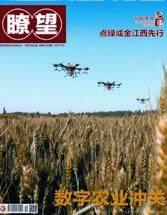LAUREATE IN LIFE SCIENCES
2021-09-24
LAUREATE IN LIFE SCIENCES
Yuen Kwok-Yung, a 65-year-old professor at the University of Hong Kong, won the Future Science Prize in life sciences on September 12 for his discovery of SARS-CoV-1 as the causative agent of the global SARS outbreak in 2003. He shares the honor with his colleague Sriyal Malik Peiris.
Yuens team treated the first SARS patients in Hong Kong and managed to isolate SARS-CoV-1 from their clinical specimens in 2003, proving critical to the design of diagnostic tests and disease characterization.
In addition, Yuens continued studies on SARS-like viruses predicted the potential re-emergence of a SARS-like epidemic and stressed the importance of public health preparedness.
The Future Science Prize is a privately funded science prize established by a group of renowned scientists and successful entrepreneurs in 2016.
Consumption Centers
Economic Daily September 13
As Shanghai, Beijing, Guangzhou, Tianjin and Chongqing take the lead in developing into international consumption centers, many cities have adopted new measures to achieve the same goal.
In 2020, per-capita consumption expenditure of China stood at 21,210 yuan($3,300), nearly double that of 2010. From 2013 to 2019, spending on services increased from 39.7 percent to 45.9 percent of the countrys total consumption.
On the one hand, the five aforementioned cities all have a relatively solid consumption base. For instance, retail sales of consumer goods in Beijing and Shanghai have exceeded 1.37 trillion yuan ($212.7 billion) and 1.59 trillion yuan ($250 billion), respectively. On the other hand, featuring service consumption, these cities managed to rapidly upgrade their consumption structure.
It is estimated that service-related spending will reach 55 to 60 percent of Chinas total consumption in the next five to 10 years. The country will adapt to digitalization, strengthen digital empowerment and tighten supervision on new consumption models.

Digital Agriculture
Outlook Weekly September 6
Digital agriculture, the practice of integrating advanced technology into farming, is driving Chinas rural vitalization. Unmanned transplanters and harvesters and intelligent irrigation control systems are examples of technologies central to smart agriculture.
Equipped with a self-driving system based on the BeiDou Navigation Satellite System, smart transplanters can independently finish the transplanting of rice, dodge obstacles, and turn around automatically when necessary. There is also a digital agriculture platform in China that gathers information on environmental factors, soil fertility and crop growth along different stages, offering scientific guidance for agricultural field management.
